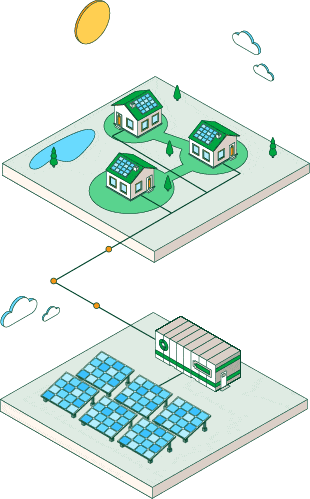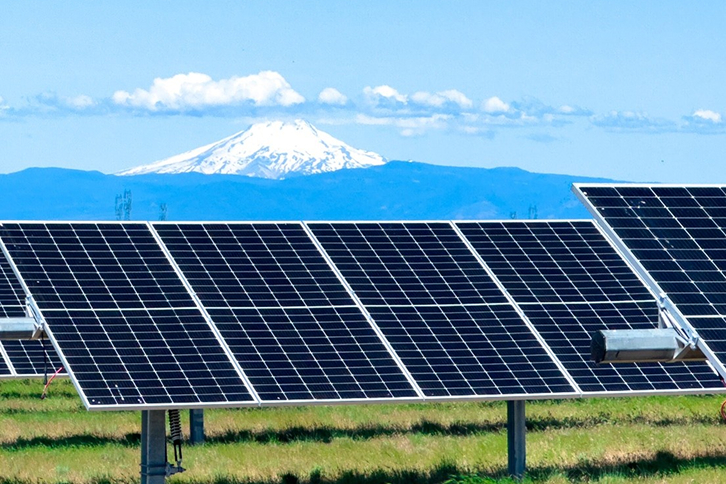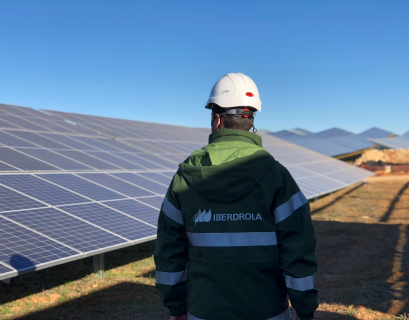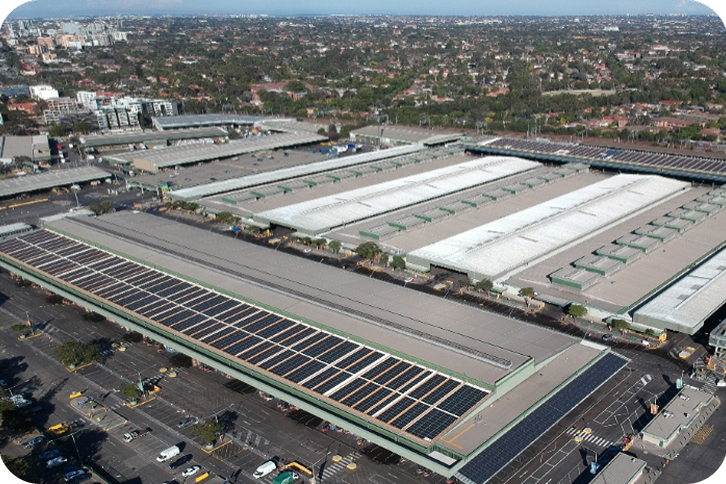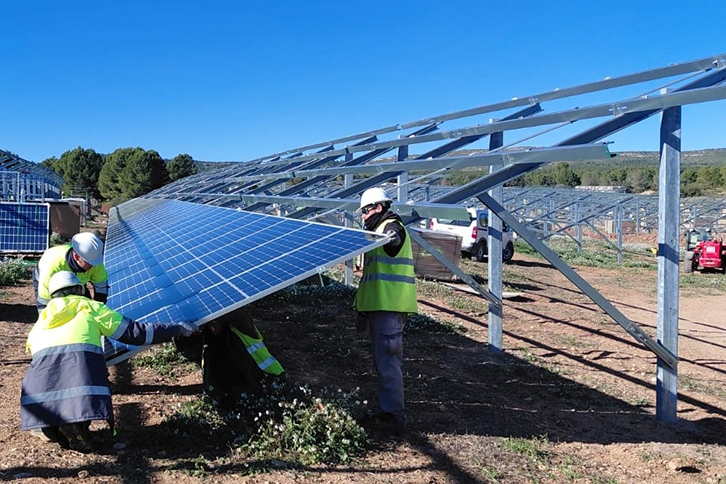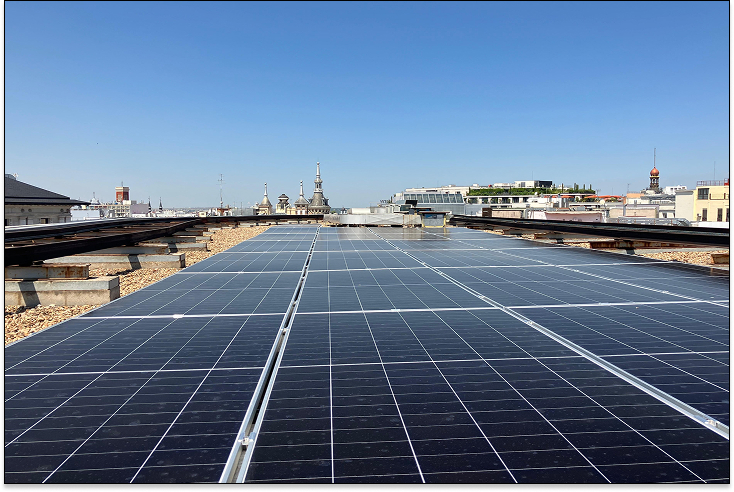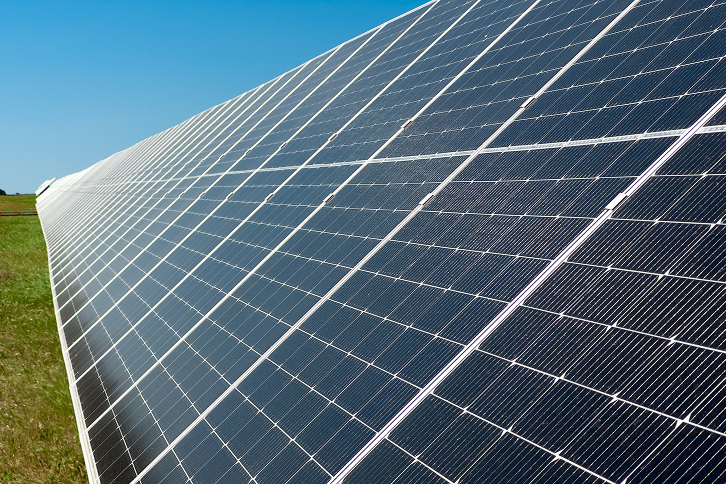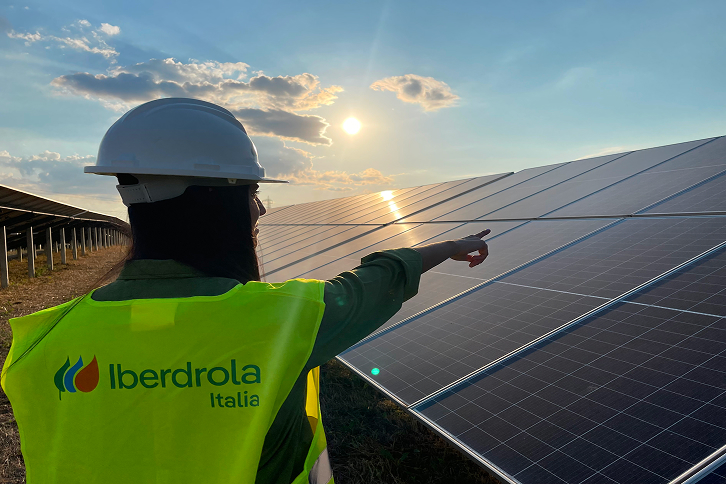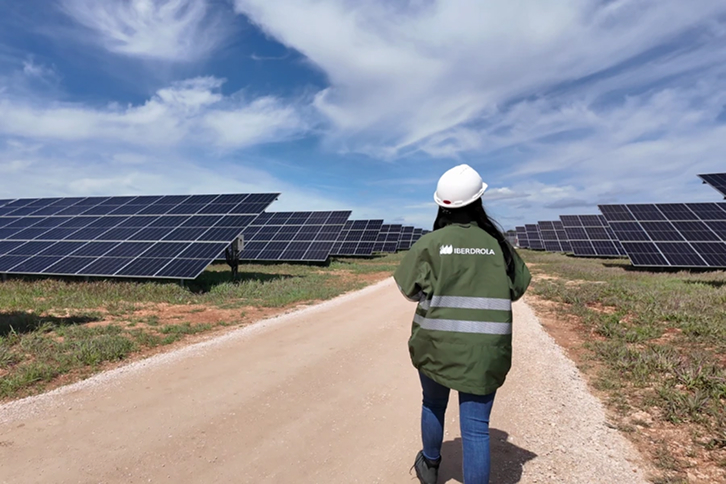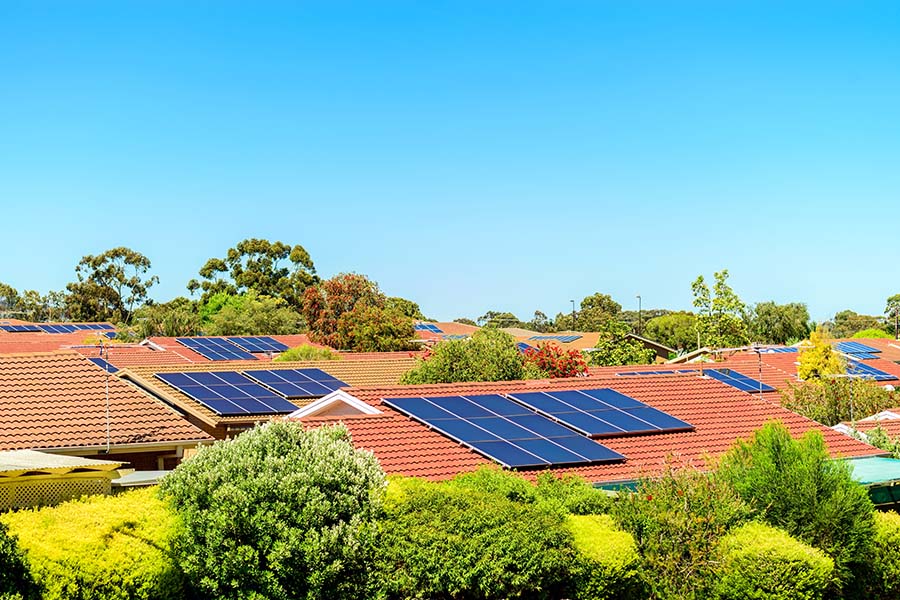Photovoltaic solar energy
We are harnessing the power of the sun
We are champions of photovoltaic solar energy. At Iberdrola, we are committed to the fight against climate change, which has driven us to support renewable energy sources in order to make the energy transition a reality.

As part of plans to grow in clean energy, solar photovoltaic technology will receive 10% of the renewable investment under the Strategic Plan 2025-2028, enabling an increase of around 2,100 MW in installed solar capacity, with a 1,900 MW project pipeline. At the end of 2025, Iberdrola already had 8,733 MW of photovoltaic capacity installed.
What is photovoltaic energy?
Photovoltaic solar energy is a clean, renewable source of energy that uses solar radiation to produce electricity. It is based on the so-called photoelectric effect, by which certain materials are able to absorb photons (light particles) and release electrons, generating an electric current.
A semiconductor device called a photovoltaic cell is used for this purpose, which can be made of monocrystalline, polycrystalline or amorphous silicon, or other thin-film semiconductor materials. The cells made from monocrystalline silicon are obtained from a single crystal of pure silicon and achieve maximum efficiency, between 18% and 20% on average.
Those made from polycrystalline silicon are made in blocks from several crystals, so they are cheaper and have an average efficiency of between 16% and 17.5%. Finally, those made from amorphous silicon have a disordered crystalline network, which leads to a lower performance (average efficiency between 8% and 9%) but also a lower price.
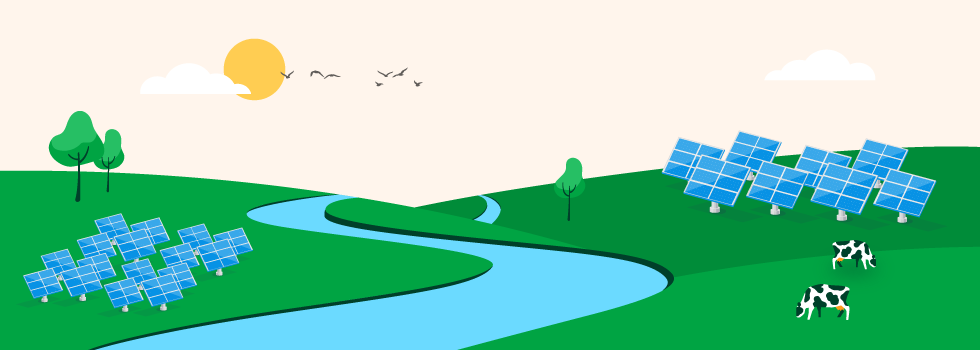
Advantages of photovoltaic solar energy
Optimal for rural areas
A system suitable where power lines do not reach or are difficult to install
Modulable according to need
It can be produced in small generator installations and in large photovoltaic plants
Green jobs
Contributes to the creation of green jobs and local economic growth
More informationPhotovoltaic energy, key in the fight against climate change
03 February 2026
23 September 2025
01 September 2025
How do photovoltaic plants work?
Photovoltaic solar energy is obtained by converting sunlight into electricity using a technology based on the photoelectric effect. It is a type of renewable, inexhaustible and non-polluting energy that can be produced in installations ranging from small generators for self-consumption to large photovoltaic plants. Find out how photovoltaic energy is obtained.
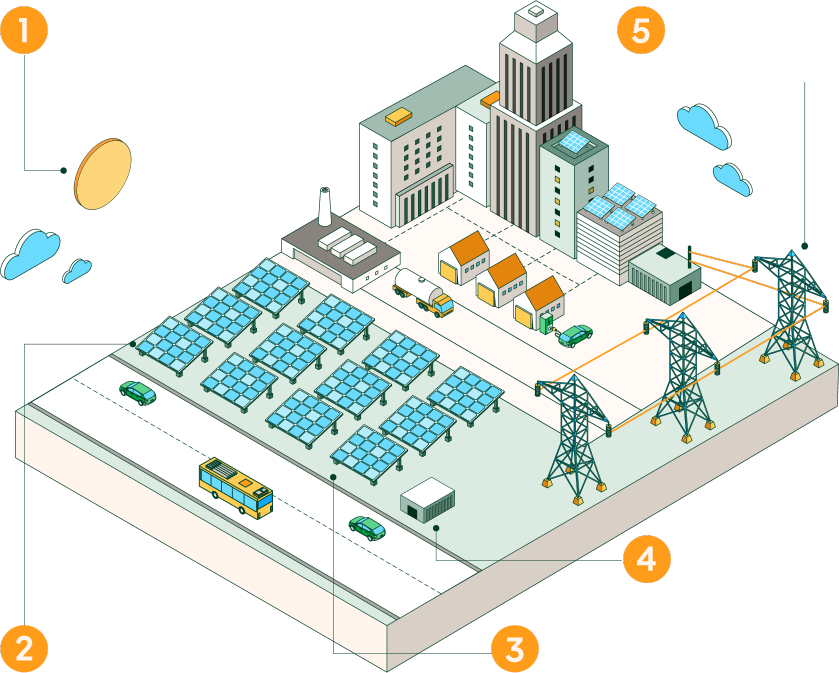
- Thanks to the photoelectric effect, the electromagnetic radiation emitted by the sun is converted into electrical energy
- The alternating electric energy, now suitable for consumption, is distributed along transmission lines
- Photovoltaic panels are formed from cells that absorb light particles (photons) and release electrons or direct electric current
- The continuous electrical energy produced by the panels is converted into alternating current by the inverters
- Transformers raise the electricity to a medium voltage (up to 36 kV)
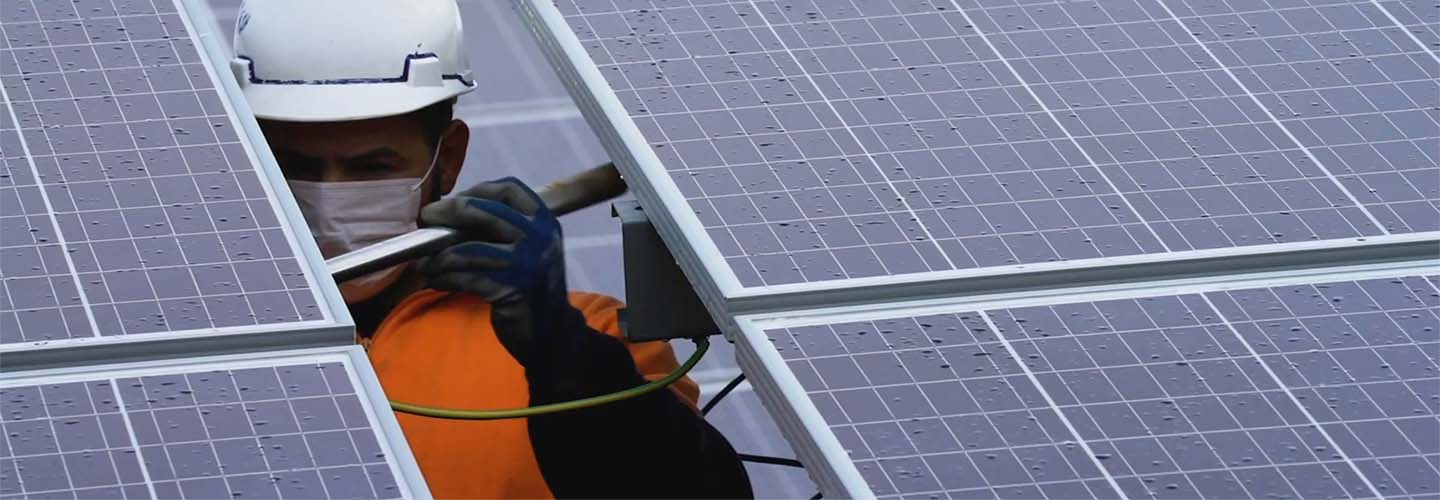
Our most emblematic photovoltaic solar energy projects
-
True North, Avangrid's largest solar photovoltaic project in Texas
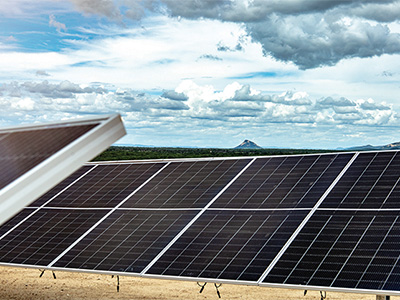
-
Francisco Pizarro, the largest photovoltaic plant in Europe
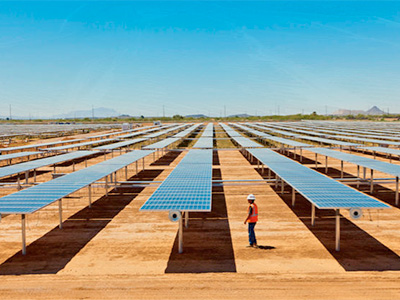
-
Santiago, our largest photovoltaic plant in the world
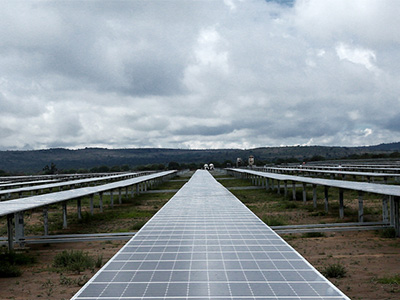
-
Lund Hill, Washington's biggest solar project
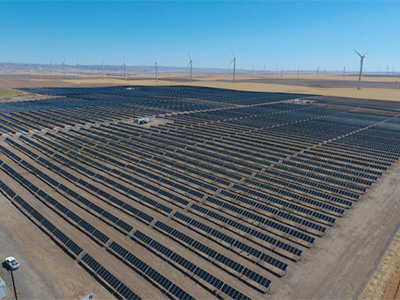
-
The Cedillo photovoltaic project, a real engineering challenge
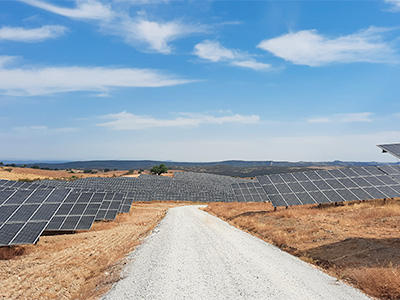
-
Núñez de Balboa, one of the biggest photovoltaic plant in Europe
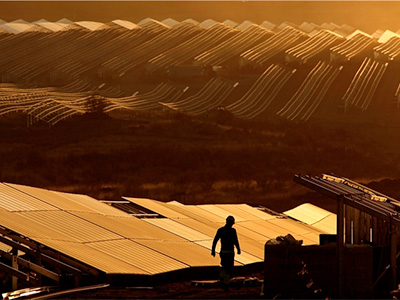
-
We are developing a new large-capacity photovoltaic plant in Ciudad Rodrigo, Salamanca
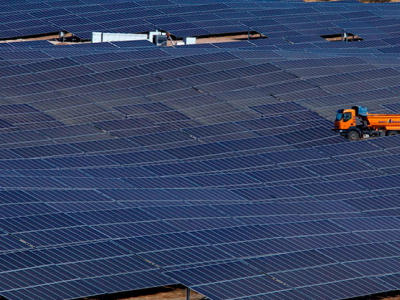
-
The Ceclavín photovoltaic plant, our third photovoltaic project in Extremadura
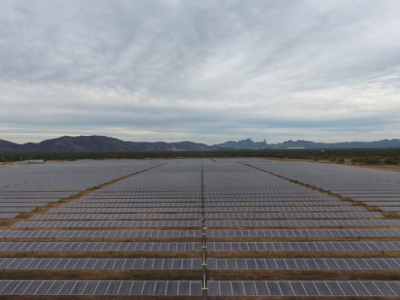
- 1
What is photovoltaic self-consumption?
Photovoltaic self-consumption occurs when individuals or companies consume energy produced in photovoltaic generation installations close to the point of consumption. In addition to the solar panels themselves, photovoltaic self-consumption installations are made up of other elements such as inverters, cables, connectors and, optionally, batteries. This type of consumption not only saves on electricity bills, but also contributes to curbing climate change by using renewable energies.
There are two types of photovoltaic self-consumption depending on the destination of the energy that the owner of the installation does not use: self-consumption without surplus, which does not involve the discharge of surplus energy into the grid; and self-consumption with surplus, which allows the injection of surplus energy into the transmission grid.
More about solar energy
What is solar energy?
Solar energy is a renewable and inexhaustible source that allows us to generate electricity from the radiation that reaches us from the sun. Committing to solar energy means committing to the fight against climate change and accelerating decarbonisation.
Discover solar energyWhat is solar energy?
Solar energy is a renewable and inexhaustible source that allows us to generate electricity from the radiation that reaches us from the sun. Committing to solar energy means committing to the fight against climate change and accelerating decarbonisation.
Discover solar energyArticles from our guest authors





